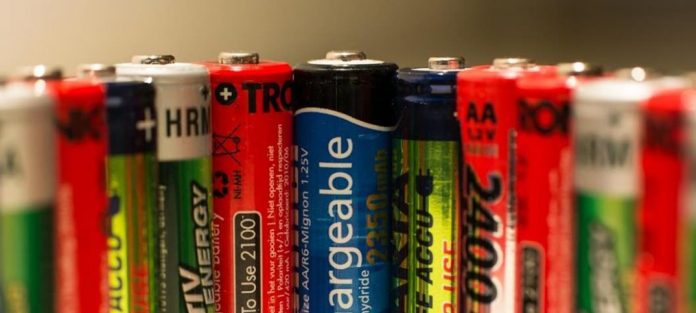Increase in collection rate of 1.6 percentage points compared to last year.
European Recycling Platform (ERP) Germany once again increased its collection rate for waste batteries in 2018, collecting a total of 1,598 tonnes through its producer-owned take-back system. That corresponds to a collection rate of 47.9 per cent, as confirmed by an external expert, and an increase of 1.6 percentage points compared to last year. ERP has thus once again exceeded legal requirements.
According to the German Battery Law, all take-back systems must collect and treat at least 45 percent of the batteries put into circulation by their respective producers. The manufacturers that use ERP Germany’s collection system put a total of 5,140 tonnes of batteries into circulation in 2018, 1,820 tonnes more than in the previous year. Accordingly, more waste batteries had to be collected in order to meet legal requirements.
Old batteries often remain in households
Increasing collection volumes, however, is anything but easy. Collection points legally required to take back waste batteries, such as battery distributors or public waste management authorities, are dependent on consumers actually bringing their old batteries to these points. In fact, old batteries often remain in households well past their actual usage life or are unlawfully disposed of in the residual waste bin. On top of that, the Battery Law bars collection points from changing the take-back system that picks up and treats the batteries they collect except at the end of each year. This restriction means that take-back systems like the ERP’s can’t serve any additional collection points at short notice and thus have difficulty accessing additional waste batteries. ERP has spoken out on several occasions in favour of relaxing these rigid rules for giving notice as part of the upcoming reform of the Battery Law.
In 2010, ERP’s producer-owned take-back system was approved by the highest authority of the State of North Rhine-Westphalia; since then, it has been operating a growing nationwide collection system for waste batteries throughout Germany. The collection of old batteries is carried out using specially designated battery barrels. Special containers are available for smaller collection quantities – in workplaces, schools, or shops, for example. These are available free of charge to interested battery collectors through a dedicated website. The batteries collected in these containers are then picked up, sorted, and delivered to specialised recycling facilities audited by ERP, all also free of charge.
Source: European Recycling Platform (ERP)






